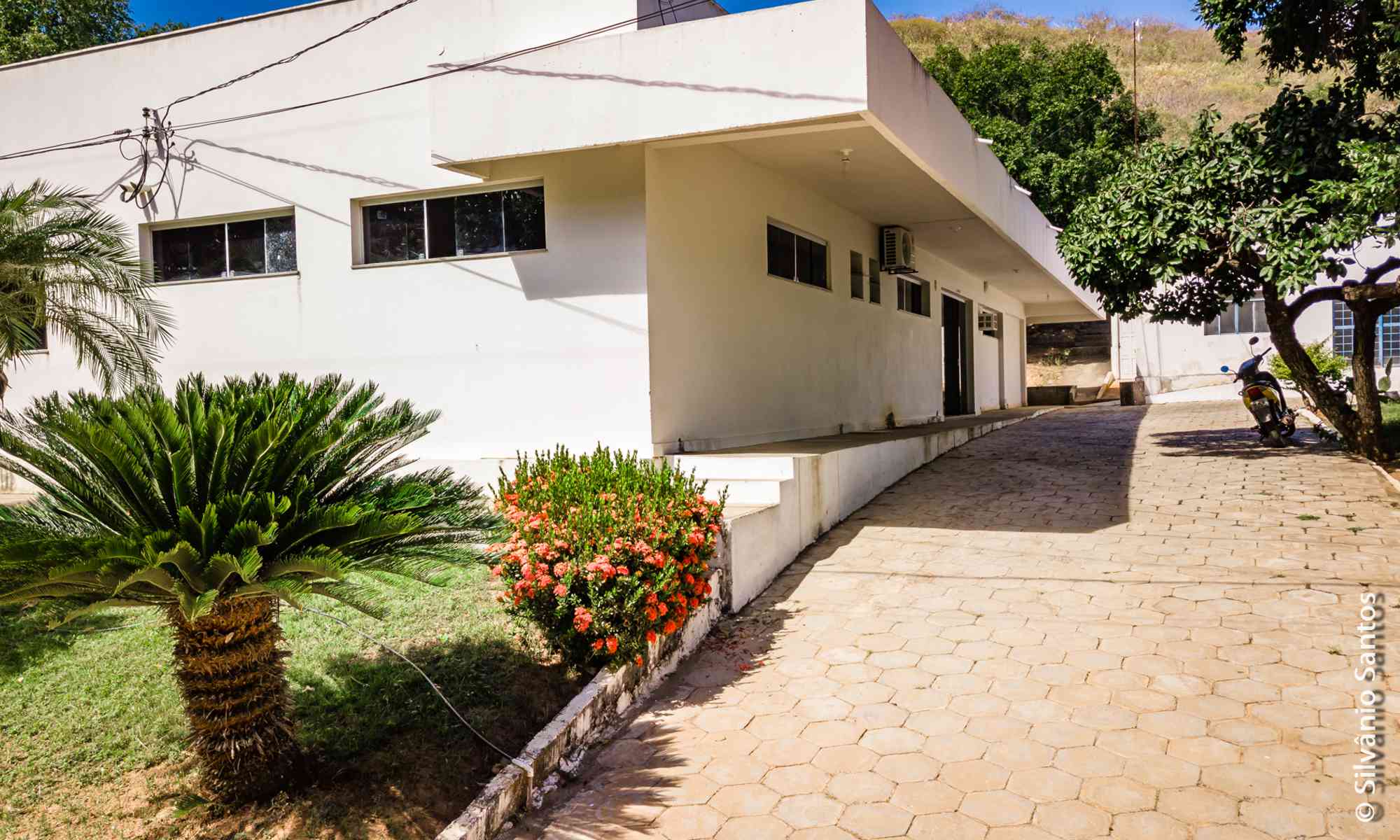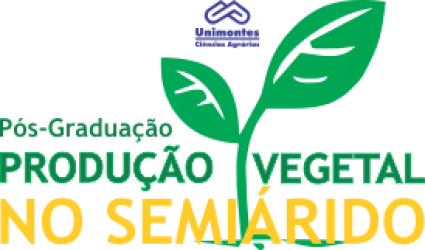- Version
- Download 0
- File Size 200.20 KB
- Create Date 16/06/2021
- Download
RODRIGUES, Fernando Barreto. Análise microbiológica de banana “prata-anã” na cadeia produtiva no norte de Minas Gerais. 2009. 37 p. Dissertação (Mestrado em Produção Vegetal no Semiárido) – Universidade Estadual de Montes Claros, Janaúba, 2009.
Este trabalho teve como objetivo avaliar a qualidade microbiológica dos frutos e da água utilizada ao longo da cadeia produtiva de banana na região Norte de Minas Gerais e identificar os pontos críticos de contaminação. Assim, foram selecionadas quatro áreas produtoras de banana “Prata-Anã”, duas que usam água do canal de irrigação (A1CI e A2CI) e duas que usam água de poço tubular (A3PT e A4PT). Por um período de quatro meses, mensalmente foram analisadas a casca e a polpa dos frutos das quatro áreas nas etapas de colheita, embalagem e transporte. Realizou-se a análise de Coliformes Totais (CT) e Termotolerantes (CTe) usando a técnica dos tubos múltiplos e de Salmonella pelo plaqueamento em meio BPLS e XLD. Colônias típicas foram submetidas aos testes bioquímicos TSI, LIA, SIM, urease e ao teste de sorologia. Foi analisada a qualidade da água proveniente do canal de irrigação (A1CI e A2CI) e do poço tubular (A3PT e A4PT), da irrigação e do tanque antes e depois da lavagem dos frutos, mensalmente durante quatro meses. Foram realizadas as análises de CT e CTe usando a técnica dos tubos múltiplos; análise de Salmonella e análise qualitativa de Escherichia coli usando o caldo lauril sulfato triptose (LST – MUG). A polpa e casca da banana em todas as amostras no período da colheita apresentaram valores de CTe menores que 3 NMP/g. Por outro lado, na fase de embalagem, a polpa apresentou valores de CTe menores que 3 NMP/g e a casca apresentou valores menores que 3 NMP/g a 93 NMP/g. Na etapa de transporte todas as amostras apresentaram valores de CTe na polpa menores que 3 NMP/g e na casca valores de CTe variaram de menos 3 a 43 NMP/g. Na casca dos frutos não foi detectada Salmonella em nenhuma etapa na A1CI e A4PT. Na A2CI, Salmonella foi detectada na casca durante a colheita e na A3PT na casca durante a colheita e a embalagem. A água do canal na A1CI apresentou média de CTe igual a 1440 NMP/100 mL; na A2CI foi de 1665 NMP/100 mL. No entanto, nas A3PT e A4PT o número de CTe foi de < 3 NMP/100 mL, com exceção do mês de novembro na A3PT, onde o número de CTe foi de 240 NMP/100 mL. A água utilizada na irrigação das plantas de banana na A1CI apresentou média de CTe 2400 NMP/100 mL e na A2CI de 2643 NMP/100 mL. Em A3PT e A4PT o número de CTe encontrado foi menor que 3 NMP/100 mL de água. Na água utilizada no tanque antes da lavagem dos frutos a média de CTe nas A1CI, A2CI, A3PT e A4PT foi de 7250 NMP/100 mL; 5650 NMP/100 mL; 66,8 NMP/100 mL; 48,15 NMP/100 mL, respectivamente. Na água do tanque após a lavagem dos frutos a média de CTe nas A1CI, A2CI, A3PT e A4PT foi de 5025;4107,5;2215 e 573,25 NMP/100 mL, respectivamente. Nas áreas A1CI, A2CI e A3PT a água do canal, do poço tubular, da irrigação e do tanque de lavagem dos frutos apresentaram E. coli. Porém, na A4PT a água do poço tubular e da irrigação não apresentou E. coli. Em relação a Salmonella na A1CI e na A2CI foi detectado na água antes e após a lavagem dos frutos e na A3PT e A4PT após a lavagem dos frutos.
Palavras-chave: Água, Banana, Escherichia coli, Salmonella
Microbiological analysis of the “Prata-Anã” banana in the productive chain in the North of Minas Gerais
The purpose of this study was to evaluate the microbiological quality of the fruit as well as the quality of the water used in the bananas production chain in the north of Minas Gerais and to identify the critical points of contamination. Hence four producer areas of “Prata-Anã” banana were selected in the North of Minas Gerais, two that used water from the irrigation channel (A1CI and A2CI) and two that used water from a well (A3PT and A4PT) for four months. The skin and pulp of the fruit from the four areas were analyzed monthly, during the harvest, packing and transportation. Analyses of Total Coliforms, Thermotolerant of the pulp and skin of the fruit using the multiple tube technique, and Salmonella by plating in BPLS and XLD medium. Typical colonies were submitted to biochemical tests TSI, LIA, SIM, urease and serology test. The water quality from the irrigation channel (A1CI and A2CI), from well (A3TP and A4TP 4), from irrigation and from the tank before and after the washing of the fruit was analyzed monthly for four months. The analyses of Total (TC) and Thermotolerant Coliforms (ThC) were done using the multiples tube technique, analysis of Sallmonella and qualitative analysis of Escherichia Coli using lauryl sulfate tryptose mixture (LST-MUG). The pulp and banana skin in all samples, during the period of harvest, presented ThC values lesser than 3 NMP/g. On the other hand in the packing stage, the pulp presented ThC values lesser than 3 NMP/g and the skin presented values lesser than 3 NMP/g to 93 NMP/g. In the transportation stage all the samples presented values of ThC in the pulp lesser than 3 NMP/g, and on the skin values of ThC varying from lesser than 3 to 43 NMP/g. On the fruit skin, Salmonella was found in none of the stages in A1CI and A4PT. In A2CI Salmonella was found on the skin during harvest and in A3PT on the skin during harvest and packing. Water from the channel in A1CI presented an average of ThC equal to 1440 NMP/100 mL; the A2CI presented an average of 1665NMP/100 mL. However, in A3PT and A4PT, the number of ThC was < 3 NMP/100 mL, except on November in A3PT, where the number of ThC was 240 NMP/100 mL. Water used for banana irrigation in A1CI presented an average of 2400 NMP/100 mL of ThC and A2CI presented 2643 NMP/100 mL. In A3PT and A4PT the number of ThC was lesser than 3 NMP/100 mL of water. In the tank water before washing of the fruits the average of ThC, in A1CI, A2CI, A3PT and A4PT was 7250 NMP/100 mL; 5650 NMP/100 mL; 66,8 NMP/100 mL and 48,15 NMP/100 mL, respectively. In the tank water after washing the fruit the average of ThC in A1CI, A2CI, A3PT and A4PT was 5025; 4107,5; 2215 and 573,25 NMP/100 mL, respectively. In areas A1CI, A2CI and A3PT the water from the channel, the well, irrigation and the tank for washing the fruits presented E. coli. However, in A4PT the water from the well and irrigation did not present E. coli. In relation to Salmonella in A1CI and A2CI was detected in the water before and after the washing of the fruit and in A3PT and A4PT it was detected after the washing of the fruit
Keywords: Water, Banana, Escherichia coli, Salmonella

